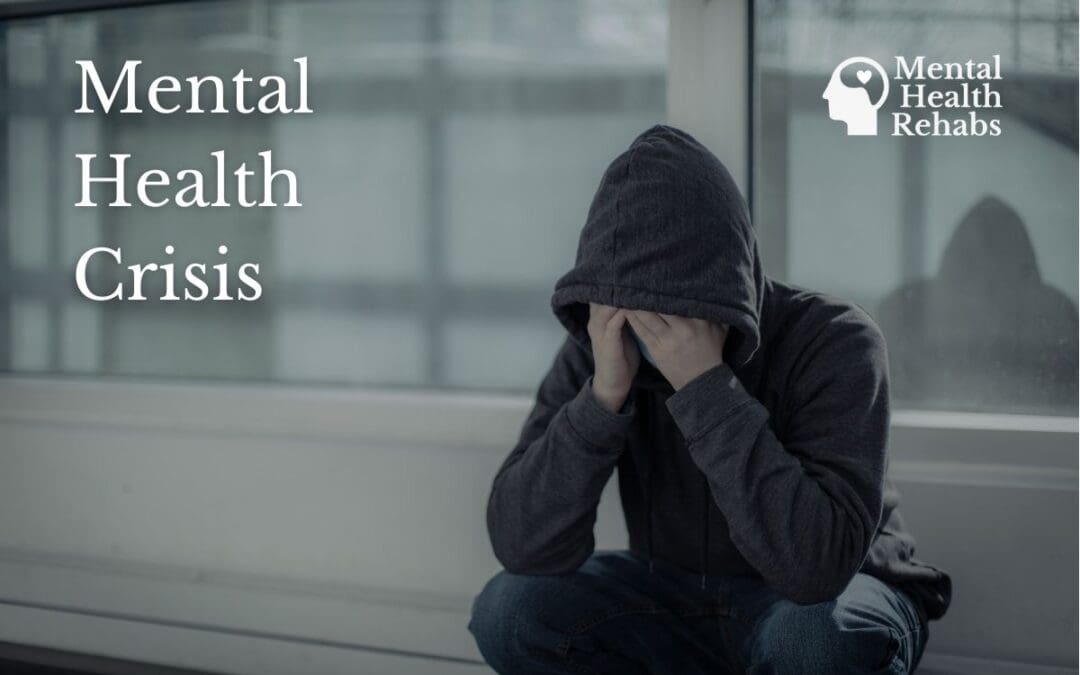Mental health is a critical component of overall well-being, but unfortunately, mental health crises are becoming increasingly common in today’s society. According to the National Alliance on Mental Illness, one in five adults in the United States experiences mental illness in a given year.
Mental health crises can be incredibly frightening and overwhelming experiences for individuals and their loved ones. They can come in many forms and can be caused by various factors, including trauma, substance abuse, and mental illness. Understanding a mental health crisis and how to respond can be life-saving, and knowing where to turn for help is critical.
What is a Mental Health Crisis?
A mental health crisis can be defined as a sudden and severe disturbance in an individual’s emotional or psychological well-being. This can manifest in various ways, including suicidal thoughts, panic attacks, intense anxiety, hallucinations, and delusions. Stressful life events, such as a loss, a traumatic experience, or the onset of a mental illness, often trigger mental health crises.
Warning Signs of a Mental Health Crisis
If you or someone you know is experiencing a mental health crisis, it is important to be aware of the warning signs. These may include:
Sadness
Being sad due to a specific event in your life, with those negative feelings going away on their own, is different from clinical depression. Clinical depression can cause the following symptoms:
- A pervasive sense of sadness
- Fatigue that other conditions can’t explain
- Difficulty concentrating
- Mood swings
- Feelings of guilt and shame
- Inability to enjoy most things
- Physical symptoms such as headaches, insomnia, and stomach upset
- In extreme cases, suicidal ideation
Extreme Anxiety
While everyone experiences situational anxiety occasionally, a clinical anxiety disorder can make even the smallest of events feel overwhelming. The most common symptoms are the following:
- Constant nervousness and tension
- Sleep disorders
- Trouble concentrating on anything but your current worry
- Sweating, rapid breathing, and increased heart rate
- Inability to manage your stress and anxiety
- Gastrointestinal problems
Substance Abuse
Drug use can start innocuously and develop into a life-altering problem. “Drugs” include legal and illegal substances such as alcohol, marijuana, nicotine, prescription medication, and street drugs. Do not feel ashamed to reach out to loved ones and mental health professionals if you are experiencing any of the following symptoms:
- An overwhelming urge to use a drug every day or several times a day
- Maintaining a steady supply of drugs
- Risk-taking behavior while under the influence and when acquiring drugs
- Ignoring your relationships and responsibilities to consume drugs
- Repeated and failed attempts at stopping
- Feeling physically ill if you stop taking it (withdrawal)
- Continuing to use the drug even though you know they harm you
If you or someone you know is exhibiting any of these warning signs, taking action and seeking help immediately is vital.
How to Respond to a Mental Health Crisis
If you or someone you know is experiencing a mental health crisis, it is important to respond quickly and effectively. Here are some steps you can take:
- Stay Calm: Whether you are the one experiencing a mental health crisis or not, try to stay as calm as possible. Remember that you are not alone and that help is available.
- Reach Out for Help: Call your therapist, psychiatrist, or primary care physician for guidance on what to do next. If you do not have a mental health provider, contact a crisis hotline or go to the nearest emergency room.
- Create a Safety Plan: If you are experiencing suicidal thoughts, it is important to create a safety plan to keep yourself safe. This may include removing harmful objects from your environment and contacting a loved one or mental health professional.
- Stay with the Person: If someone you know is experiencing a mental health crisis, staying with them and ensuring their safety is important. Encourage them to seek help and offer your support.
Where to Turn for Help
There are several resources available for individuals experiencing a mental health crisis. These include:
- Crisis Hotlines: Several crisis hotlines are available, including the National Suicide Prevention Lifeline, which can be reached at 1-800-273-TALK (8255).
- Emergency Rooms: If you are experiencing a mental health crisis, you can go to the nearest emergency room for immediate help.
- Mental Health Professionals: Reach out to a mental health provider, such as a therapist or psychiatrist, for guidance on what to do next.
- Support Groups: There are several support groups available for individuals experiencing mental health crises, including online support groups.
Mental health crises can be frightening and overwhelming experiences, but they are not uncommon. It is important to understand a mental health crisis, be aware of warning signs, and know how to respond. Remember that help is available, and resources and support systems are in place to help you through this difficult time.

